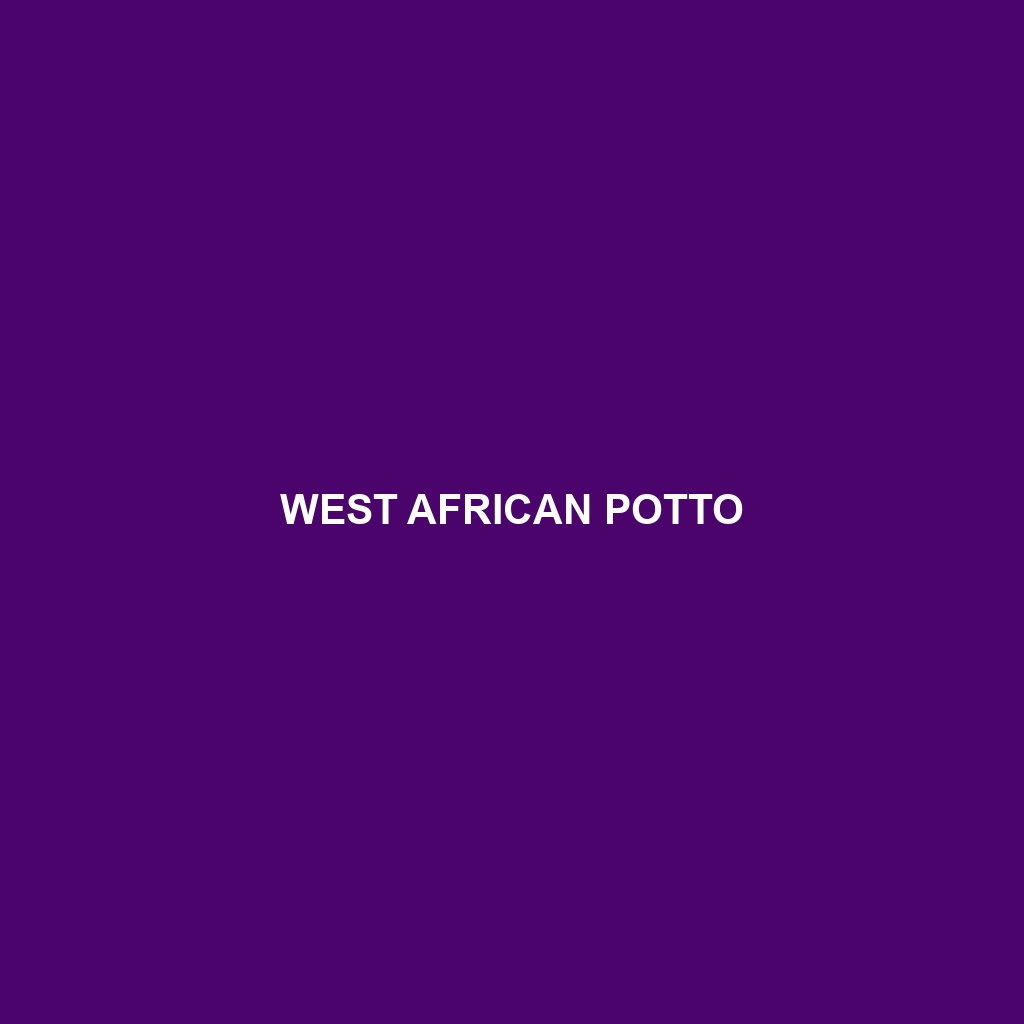West African Potto
Common Name: West African Potto
Scientific Name: Perodicticus potto
Habitat
The West African Potto is primarily found in the tropical rainforests of West Africa. This nocturnal primate inhabits countries such as Nigeria, Cameroon, and the Democratic Republic of the Congo. It prefers dense, moisture-rich environments with tall trees, where it can easily navigate the canopy and find shelter from predators.
Physical Characteristics
The West African Potto is a medium-sized primate, measuring approximately 30 to 40 centimeters in length, excluding its tail. It exhibits a thick, woolly fur that varies in color from grayish-brown to reddish-brown, helping it blend into its leafy surroundings. Distinctive features include large, wide-set eyes adapted for night vision, a flat face, and long, grasping hands and feet that enable efficient climbing and gripping of branches.
Behavior
Known for its slow and deliberate movement, the West African Potto is primarily nocturnal. It exhibits a unique mode of travel, utilizing a “quadrupedal clambering” technique to maneuver through branches. Potto are social creatures, often found in small groups and displaying a range of vocalizations that include soft grunts and whistles, which serve to communicate during their nightly activities.
Diet
The West African Potto follows a frugivorous diet, primarily consuming fruits, leaves, and flowers. It also occasionally feeds on insects, which provides essential protein. This primate forages primarily at night, using its keen sense of smell to locate ripe fruits. Its ability to eat various foods makes it an important seed disperser within its rainforest habitat.
Reproduction
The reproductive habits of the West African Potto involve a breeding season that typically peaks during the rainy season when food is abundant. After a gestation period of about 5 months, females give birth to a single offspring. Maternal care is significant, with mothers nursing their young and teaching them essential survival skills for the first few months.
Conservation Status
The current conservation status of the West African Potto is classified as **Vulnerable** according to the IUCN Red List. Threats to its survival include habitat destruction due to logging and agricultural expansion, as well as hunting for bushmeat. Conservation efforts are crucial to protect this unique primate from further decline.
Interesting Facts
One fascinating fact about the West African Potto is its ability to rotate its head nearly 180 degrees, allowing it to survey its surroundings without moving its body. Additionally, potto have been observed exhibiting a defensive behavior known as “freezing,” where they become immobile and blend into their environment to avoid detection by predators.
Role in Ecosystem
The West African Potto plays a vital role in its ecosystem by acting as a seed disperser, contributing to the growth and regeneration of forest plants. Its diet helps maintain the health of plant populations and supports the overall biodiversity of the rainforest ecosystem. By promoting plant diversity, the potto aids in sustaining the habitat for other species within its community.
